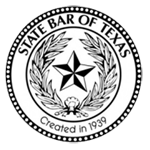How You Can Close Your Criminal Record
Are you seeking to erase or seal your past criminal record through expunction or non-disclosure? You need to consult an experienced and knowledgeable attorney who understands the differences as well as the impact each may have on your criminal record. Ben Hunsucker and his legal team are veterans in the expungement and non-disclosure processes and can help you navigate the often complicated legal terrain. We will assist you in achieving the result you desire.
Expunction or Expungement
Expunction or expungement is the complete destruction of all paper and digital records from law enforcement and private background check systems and offices. In the event your case was dismissed or on the chance you happened to have completed a pre-trial intervention program, legally you are innocent and are eligible for expunction.
Non-Disclosure
Unlike an expunction, an order of nondisclosure is not a complete obliteration of your arrest record, but rather a limitation of access to it. A nondisclosure is a judge’s order to seal your records prohibiting law enforcement, government officials, and private companies that perform background checks from divulging your criminal history to the general public. The information still exists, but most individuals will not be able to access it.
The Hunsucker Legal Group can analyze your unique situation and determine which avenue will be best for you. They will explain the effects and consequences of expunction and non-disclosure and help you make the decision necessary for your case.
DWI Non-Disclosure
A new law passed in 2017 in the state of Texas also allows citizens to petition for an order of non-disclosure regarding a first-time DWI offense – but only in certain circumstances. This bill, which went into effect in September of 2017, is Texas HB 3016. While it doesn’t allow for anyone to petition for an order of non-disclosure for their DWI, it does provide a certain set of circumstances under which some Texans may be able to successfully petition for this to happen.
What you need to know is that HB 3016 allows you to petition for your record to be placed under an order of non-disclosure. This is not as complete as an expunction, so even if your appeal is successful, your DWI can return to your record, and in fact will if you ever pick up a second DWI.
In order for your petition to be successful, you must meet the following criteria:
- You must have never had any other convictions or periods of probation for any other offenses at all. The only exception are traffic offenses that do not involve alcohol or drugs.
- Only your first DWI is eligible, and only if it is the only DWI you have.
- Your BAC can not have been higher than .15
- You must have completed any and all mandated periods of community service and/or confinement.
- The offense involving your DWI must not have resulted in any kind of accident that involves any other persons.
- Any fees, fines, and court-ordered restitutions must also be paid in order to be eligible.
- You must have passed the mandatory waiting period.
The waiting period is a little tricky because there are two different waiting periods – depending on the circumstances surrounding your first DWI:
- If you completed at least 6 months with an ignition restricted motor vehicle as part of your sentencing for your DWI, then your mandatory required waiting period is 2 years. After this, you can petition for an order of non-disclosure related to your DWI – as long as you meet the above criteria.
- All others who do not meet the 6-month ignition restriction device requirement must wait a full 5 years from the date they completed all other eligibility requirements.
You should be aware that if your petition is successful, it will not prevent law enforcement personnel at the state or federal level from seeing your DWI. Nor will it prevent federal employer from seeing it on your record.
Additionally, should you ever commit a second DWI, the non-disclosure order will no longer hold and you will then have 2 DWIs on your record.
Contact our office for your free initial consultation today. The Hunsucker Legal Group serves clients in Denton, Cooke, and Wise Counties.




